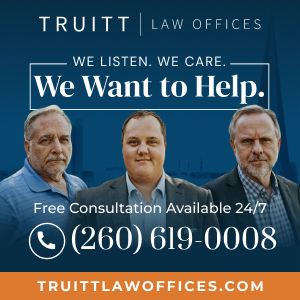Common causes of brain injuries in Lafayette, Indiana
Brain Injury Claims and Lawsuits in Lafayette, Indiana: Understanding Common Causes and Legal Options
Brain injuries remain one of the most devastating types of trauma that Lafayette residents face, with causes ranging from motor vehicle accidents on Sagamore Parkway to workplace incidents at local manufacturing facilities. These traumatic brain injuries (TBI) can result from slip and falls at commercial properties, sports-related impacts at local schools and universities like Purdue, construction site accidents, and medical malpractice incidents at facilities such as Franciscan Health Lafayette East. The impact of a TBI extends far beyond immediate medical concerns, often requiring extensive rehabilitation at specialized facilities like IU Health Arnett Hospital and causing significant disruption to victims' professional and personal lives. For many Lafayette residents, pursuing a personal injury claim becomes essential to secure the substantial financial resources needed for long-term care, ongoing therapy, and compensation for lost wages and diminished quality of life.
Legal Rights and Considerations: Under Indiana Code § 34-11-2-4, victims have two years from the date of injury to file a personal injury lawsuit. Indiana follows a modified comparative fault system (IC § 34-51-2-6), meaning victims can recover damages as long as they are 50% or less at fault, though compensation is reduced by their percentage of fault. For workplace-related brain injuries, Indiana Workers' Compensation laws provide specific benefits, but third-party claims may also be possible. Insurance considerations typically involve auto insurance for vehicle-related TBIs (Indiana requires minimum coverage of 25/50/25), premises liability coverage for slip and fall incidents, and medical malpractice insurance for healthcare-related injuries. Compensation may include medical expenses, lost wages, pain and suffering, and in some cases, punitive damages. An experienced Lafayette brain injury attorney(link is external) will handle all aspects of the legal claim.
10 Essential Brain Injury Recovery Concepts Related to Personal Injury Cases
- Cognitive Rehabilitation Therapy (CRT): Structured treatment program designed to improve thinking skills, memory, attention, and problem-solving abilities after brain injury.
- Neuroplasticity: The brain's natural ability to form new neural connections and reorganize existing ones, enabling recovery and adaptation after injury.
- Activities of Daily Living (ADLs): Basic self-care tasks and skills needed for independent living, including personal hygiene, dressing, and eating.
- Post-Concussion Syndrome (PCS): A complex disorder where symptoms like headaches, dizziness, and cognitive issues persist for weeks or months after the initial injury.
- Occupational Therapy: Rehabilitation focused on helping patients regain independence in work, home, and daily activities through practical skill development.
- Speech-Language Pathology: Specialized therapy addressing communication, cognitive-communication, and swallowing difficulties resulting from brain injury.
- Physical Medicine and Rehabilitation (PM&R): Medical specialty focused on restoring function and quality of life through comprehensive treatment approaches.
- Neurobehavioral Symptoms: Changes in personality, emotional regulation, and behavior that commonly occur following brain injury.
- Executive Function: Higher-level cognitive skills including planning, organizing, problem-solving, and decision-making that are often impacted by brain injury.
- Adaptive Equipment: Specialized tools, devices, and technology that help compensate for functional limitations and support independence during recovery.
If you've been injured in an accident, click the links below to get help from an attorney who specializes in your type of accident or injury:
- Lafayette car accident attorney(link is external);
- Lafayette pedestrian accident attorney(link is external);
- Lafayette motorcycle accident lawyer(link is external);
- Lafayette truck accident lawyer(link is external);
- Lafayette bicycle accident attorney(link is external);
- Lafayette spine injury attorney(link is external);
- Lafayette wrongful death claim lawyer(link is external).
Regardless of how severe an accident is, almost everyone involved has to deal with insurance companies and claims. For crashes involving more serious injuries, or when a fatal crash occurs, a Charlottesville personal injury attorney is needed to manage the insurance claim. Go here to learn more about how a Lafayette personal injury lawyer(link is external) helps injured victims.
Related Resources: Local Courts:
- Tippecanoe County Superior Court
- Tippecanoe County Circuit Court
- U.S. District Court, Northern District of Indiana (Lafayette Division)
Support Services:
- Indiana Brain Injury Association
- Rehabilitation Hospital of Indiana
- Lafayette Crisis Center
- Tippecanoe County Victim Assistance Program
Legal References:
- Indiana Code Title 34 (Civil Law and Procedure)
- Indiana Administrative Code Article 37 (Worker's Compensation Board)
- Indiana Rules of Trial Procedure
- Indiana Department of Insurance Regulations
Return to the Lafayette accident information page
Most recent accident reports
In a tragic incident on February 20th, 2025, a wrong-way driver caused a devastating head-on collision on US 41 in Warren County, Indiana, resulting in
A serious two-vehicle crash occurred at the intersection of US 231 and Lindberg Road in West Lafayette, Indiana on Tuesday evening, resulting in injuries and significant traffic disruption.
A tragic single-vehicle accident claimed the life of 66-year-old Dana Guttridge of Lafayette at the intersection of South Street and Sagamore Parkway on Thursday evening.
A chain-reaction crash involving four semi-trucks occurred Thursday afternoon on northbound Interstate 65 near the Lafayette/Indiana 25 exit, resulting in two confirmed injuries and significant traffic disru
Fatal I-65 Rollover Crash in Lafayette Claims Life of 22-Year-Old Woman, Driver Arrested for Suspected DUI
A devastating collision between a semi-truck and a Chrysler Pacifica on U.S.
On Tuesday morning, hazardous weather conditions led to a series of serious accidents on US 52 in Lafayette, Indiana, including one that injured a responding police officer.
A tragic single-vehicle accident on Thursday evening resulted in the death of 46-year-old Christopher Ewing of Otterbein when his vehicle struck a tree while attempting to avoid deer on Division Road in Tipp
A two-vehicle crash occurred at the intersection of Yeager Road and Sagamore Parkway in West Lafayette, Indiana, on Tuesday evening around 9:10 PM.
- Page 1
- next ›


